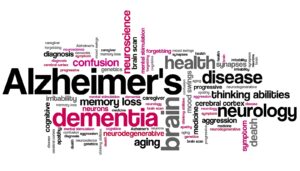Approximately 5 million Americans are diagnosed with Alzheimer’s (Alzheimer’s Association). Not all of them are going to choose assisted living for their future, but it can be a wonderful option to consider.
Some family members, including a spouse or adult children who might live close enough to be primary caregivers may feel like they are letting this aging person down, turning their back on them during their most difficult time of need if they can’t be the primary care provider.
In truth, there are many options available to seniors who need elder care. Assisted living is one of them. So, is assisted living something an elderly person should consider when they or their spouse or somebody else they love has been diagnosed with Alzheimer’s?
What is the key benefit that assisted living provides for somebody with Alzheimer’s?

Assisted Living Daphne, AL: Alzheimer’s and Assisted Living
Not every assisted living community is going to be optimal in this situation. It’s important to look to memory care assisted living first and foremost. If an assisted living facility does not have staff experienced and trained to support those with memory related challenges, this might not be the best option for a person with Alzheimer’s.
When it comes to a specific memory care facility, they will have staff not only trained, but experienced (and growing with even more experience) in supporting people with memory challenges, including those with Alzheimer’s.
Alzheimer’s is a type of dementia. It’s not the only form of dementia somebody may be diagnosed with who has memory challenges. However, Alzheimer’s is the one most people think about.
For somebody with Alzheimer’s, the right assisted living community can be a great elder care option because of the experience staff members have.
Also, having somebody there with this aging senior 24 hours a day, seven days a week, it can offer a great deal of assurance to family members who worry they might wander, get up in the middle of the night and be confused, stressed, or frustrated.
That around-the-clock care can be extremely beneficial at keeping those seniors with Alzheimer’s safe, at least much safer than they might have been at home alone.
Another wonderful benefit that memory care assisted living can provide an aging senior with Alzheimer’s likely involves activities. Certain activities can be beneficial for somebody with a form of dementia, like Alzheimer’s.
For example, some studies indicate mental stimulation can help delay the progression of memory loss for somebody with Alzheimer’s (Fisher Center for Alzheimer’s Research Foundation).
How to talk about assisted living with somebody diagnosed with Alzheimer’s.
The best approach is to be direct and honest. You don’t have to be cool, callous, or indifferent, but rather understand their hesitancy, their questions, concerns, doubts, and fears and take that all into consideration when you broach the topic.
Be equipped with information — reliable, honest, genuine information, not just guessing and hoping you’re right — and ready to answer questions honestly and patiently.
When you are honest and patient with the senior who has been diagnosed with Alzheimer’s, they are far more likely to listen to what you have to say. Then, you may be able to encourage them to consider assisted living while they are still lucid and cogent.


Follow Us!